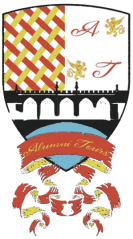The Best Guide to Literary Cambridge

Literary Cambridge
Every Cambridge undergraduate at some point (possibly in the rain just to prove it can be done) takes out their college punt and attempts to pole themselves along the river, possibly getting marooned in the deep water around St John’s College. At the Mill they haul the punt over the rollers to reach the higher level of the river, and carry on to Grantchester, chatting to passers by (which may include cows) on the way. Once there it is time for tea and scones in the Orchard Tea Garden, a popular treat since 1897 and a famous rendezvous for the Bloomsbury Group, which included EM Forster, Rupert Brooke, John Maynard Keynes (all King’s College) and Leonard and Virginia Woolf (Leonard was at Trinity College, Virginia was at King’s College, London). They are of course long gone but now bestselling author Jeffrey Archer lives in the Old Vicarage, Grantchester, who immortalised the house in his eponymous poem.
Cambridge students have tested most of the college rules over the years. One of the more famous occasions was when poet Lord Byron, arriving to study at Trinity College, reputedly brought a bear with him, having observed that the regulations forbade cats and dogs, but made no mention of other animals. Alfred Lord Tennyson, also at Trinity, was already known for his poetry by the time he left. One of his greatest works, Ulysses, was written two years after leaving Cambridge on the death of his close Cambridge friend, the poet Arthur Hallam.
Philosopher and logician Bertrand Russell was both an undergraduate and lecturer at Trinity College, although his anti-war writings resulted in a £100 fine and dismissal from the College in 1916. He re-joined Trinity after the war, and went on to win the Nobel prize for literature.
AA Milne was an undergraduate at Trinity College, which has a first edition of his Winnie the Pooh in the Wren Library, along with Newton’s Principia Mathematica, and a Shakespeare First Folio.
Another copy of the Principia Mathematica was owned by Newton’s friend Samuel Pepys, the great London diarist during the Great Fire of London. Pepys studied at Magdalene (pronounced ‘Maudlin’) and left the college his library, which can still be visited today. Charles Kingsley was another Magdalene undergraduate, later becoming professor of modern history here, during which time he wrote the Water Babies; and CS Lewis was a fellow here for the last nine years of his life, although he had written most of his books by then.
Shakespeare has no particular connection to Cambridge, but his great contemporary, Christopher Marlowe, born in the same year, 1564, and famed for his plays Dr Faustus and Tamburlaine, does. He was from a poor background and won a scholarship to Corpus Christi College, where it is suspected he became a spy for Elizabeth I’s spymaster general, Francis Walsingham (who was an alumnus of King’s College). Marlowe suddenly started to live a lavish lifestyle, spending time away from Cambridge, and, when there was a question over his degree, the Privy Council intervened due to his ‘good service’ to the Queen. Legend has it that Marlowe was killed in a pub brawl in Deptford. While this is known not to be true, there are many theories as to what really happened, with some people even believing he wasn’t killed, but carried on writing plays as Shakespeare. A much simpler theory is that Shakespeare wrote his own plays, but exactly what happened to Marlowe we shall probably never know. John Fletcher, who took over as playwright for the King’s Players company in London after Shakespeare, was also at Corpus.
Recent novelists include Salman Rushdie (King’s College), whose Satanic Verses resulted in death threats from some Muslims, Tom Sharpe (Pembroke College) whose Porterhouse Blue was definitely based on life in Cambridge, albeit things have probably moved on from then, and Douglas Adams (St John’s College) who wrote the Hitchhiker’s Guide series.
Poets include William Wordsworth (St John’s College) and Samuel Coleridge (Jesus College), who together launched the Romantic Age in English Literature with their 1798 joint publication Lyrical Ballads. Siegfried Sassoon (Clare College) was known for his anti-war poetry, while Sylvia Plath (Newnham College) and Ted Hughes (Pembroke College) were a great married poet combination, though Plath committed suicide at the age of 30.
Relatively few students buy textbooks for their courses, but many get book grants, some of these directly with Heffers, the traditional Cambridge bookshop, which opened as a stationers in 1876, expanded to have 13 stores across the city at its height, and now has a large and much-loved store opposite Trinity College. The Cambridge University Press bookshop on the corner of Trinity Street by Great St Mary’s is the oldest book shop site in the country, selling books here since at least 1581. David’s Bookshop is the second-hand shop for those in the know, hidden away in St Edward’s Passage between King’s College and the Guildhall.
Cambridge has been used as a location in many books, including EM Forster’s Maurice, CP Snow’s The Masters, Sebastian Faulks’s Engleby, Stephen Fry’s The Liar, Philippa Pearce’s Tom’s Midnight Garden, PD James’s Death of an Expert Witness and Kate Atkinson’s Case Histories.
– Christopher Jagger ‘King’s College, Alumni’
